Be honest. When was the last time you slept so well that you woke up not remembering which year it was? For me, it was probably a decade ago when I was in school. As you grow older, it’s so hard to really get the sleep of your dreams and wake up feeling (and looking) fresh as a daisy. If you’re always waking up tired no matter how much you sleep, then this blog will give you the answers you need. Just so you don’t have to spend another waking moment worrying about this.
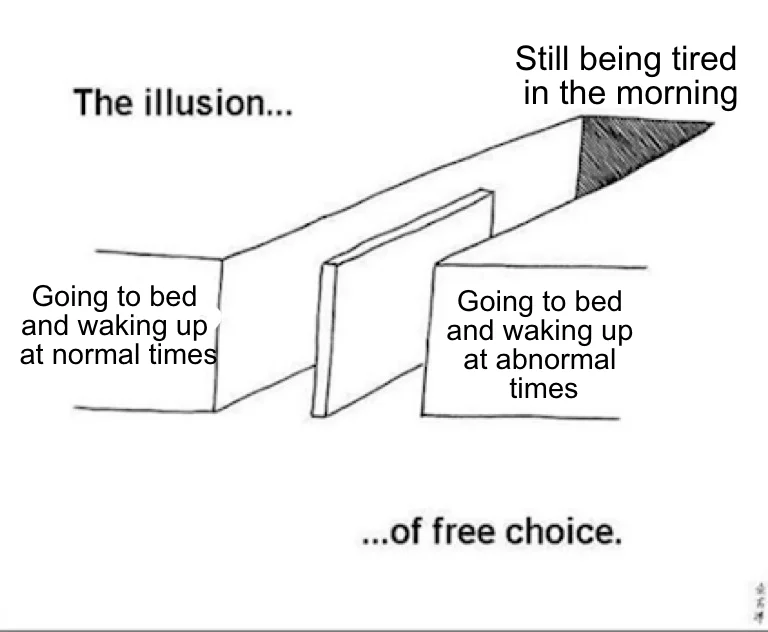
What is good sleep?
A lot of common misconceptions about sleep stem from not understanding sleep well. There are two kinds of sleep that we usually toss between. These are REM sleep and Non-REM sleep. Both help us achieve good sleep.
Non-REM sleep has 3 stages:
Stage 1: You’ve just slept but can wake up easily.
Stage 2: Your heart rate slows down and you’re preparing to fall into a deep sleep.
Stage 3: The much-needed deep sleep where your body repairs tissues, builds muscle and strengthens the immune system.
After stage 3, you fall into REM sleep. REM or Rapid Eye Movement sleep is the deepest sleep of all. It’s when your eyes move rapidly in different directions without actually seeing anything. REM sleep helps your brain learn, memorize and function better.
Now that we know what are the kinds of sleep you get, here’s an open-eyed look at why you are waking up tired:
You’re probably doing it wrong
There are many ways in which you could be hampering your own sleep. Good sleep depends on a lot of things like your sleep posture, room temperature and mattress build. When you fall into deep REM sleep, your brain remains active but your body enters a state similar to paralysis to avoid making sudden movements. If you slept with your neck or back hunched, chances are you’ll be waking up tired and in pain. Not only this, a room that’s too cold or too hot, or an uncomfortable mattress could keep waking you and preventing you from sliding into a deep sleep. A medium-firm mattress is good for most people. You can pair it with a natural latex or memory foam pillow for good support.

Sleep quality decreases as you age
The golden age for sleeping ends before teenage for most people. As we age, we sleep almost the same amount of hours but our quality of sleep significantly reduces. Kids need a lot more deep sleep to stimulate their brains and aid their growth process. Babies get 50% deep sleep while adults only get 20%. Older people end up getting the least amount of deep sleep because their deep sleep gets interrupted every time they wake up to pee.
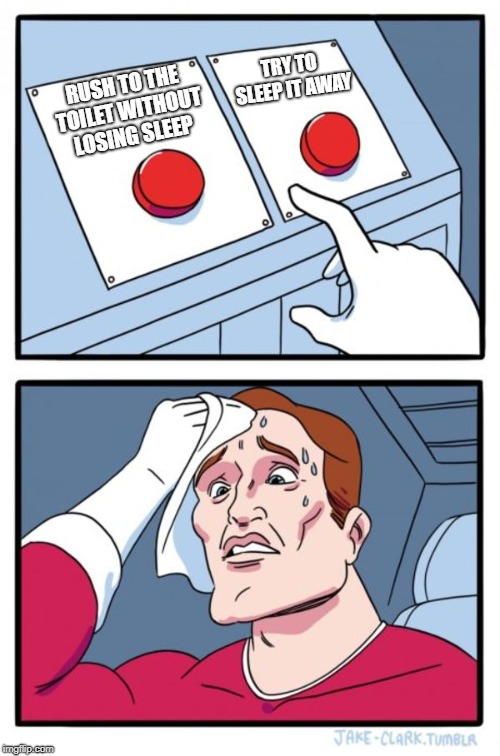
Sleep needs are different for everyone
The average 7-8 hours of sleep has been a gold standard since forever. But your sleep needs are more complicated than that. You could be waking up tired even after sleeping your standard 8 hours if you have a sleep debt. Sleep debt is the difference between the amount of sleep you should ideally get and the amount you end up getting. It may take you 4-9 days to completely recover from one hour of sleep debt. So if your body demands the extra hour after 8 hours of sleep, it’s probably just paying off your sleep debt for you.
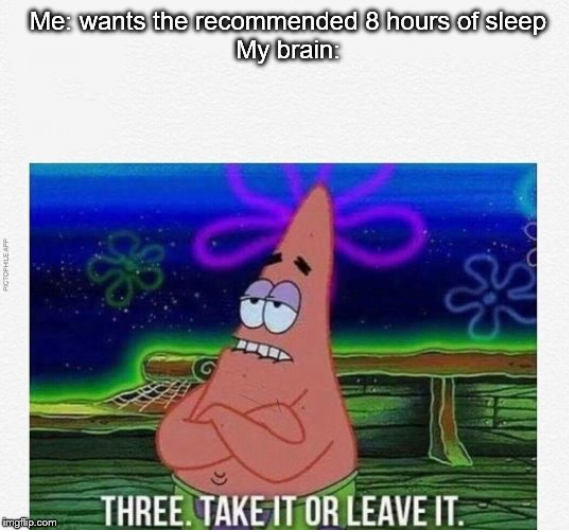
You’re not sleeping when you should
Your body follows a circadian rhythm. It wants to wake up with the sun and sleep with the moon. When you do that, you give it enough time to digest food, produce hormones, repair tissues, and regulate your melatonin well. If you delay your sleep too much, your body doesn’t get enough time to produce hormones that help you digest, reproduce and control blood sugar. This ends up in you waking up tired and feeling lethargic throughout the day.
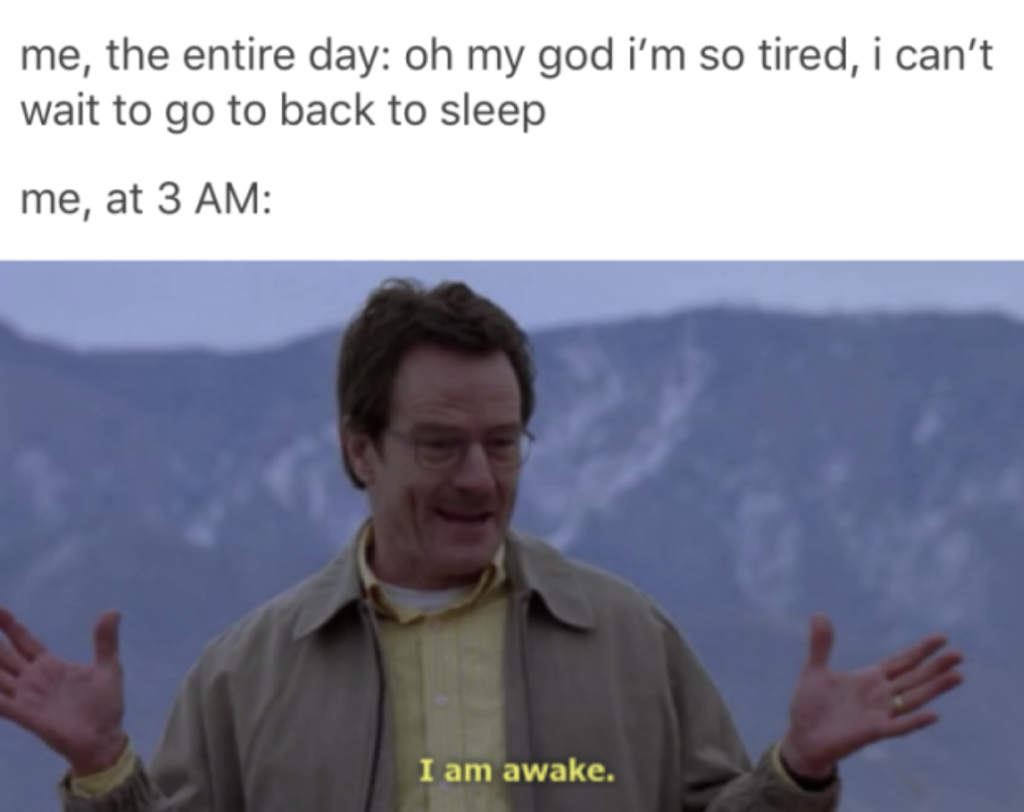
You’re snoozing too much
Do you set up 10 backup alarms with many snoozes? When you wake up with an alarm, you’re in a state of sleep inertia transitioning between sleeping and wakefulness. In this state, you should just have one alarm that wakes you. Snoozing too much or setting up constant alarms in the hope that you’ll get to sleep a bit longer will make you feel more groggy. This is because the brain needs at least 40 minutes to wiggle into deep sleep. But when you keep snoozing every 5 minutes, all you’re doing is annoying your brain into being groggy and dazed.
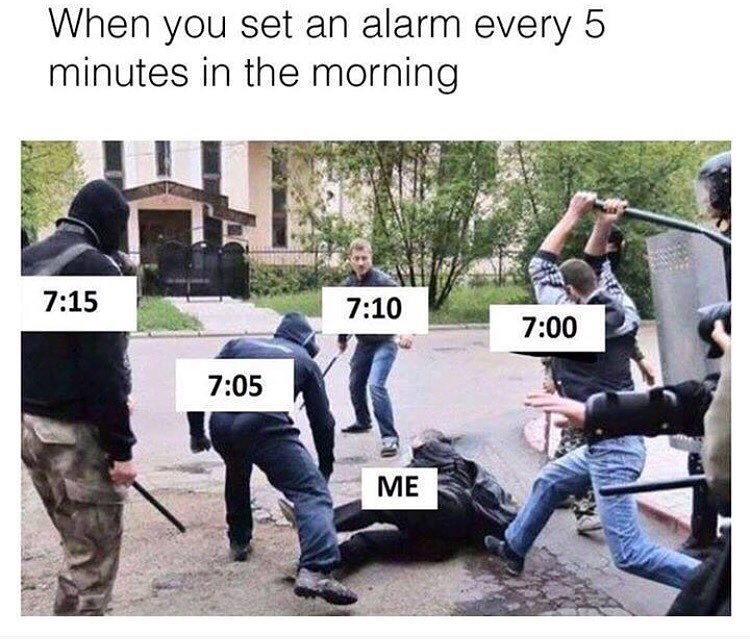
You aren’t eating right
You shouldn’t dive into your bed right after dinner. Give your body at least an hour to adjust to the food and then head to bed. Caffeine and alcohol also play a big role in keeping you up and decreasing your sleep quality. Too much caffeine or alcohol at night messes up your metabolism and your body’s ability to produce hormones at night. This is because your body is too focused on dealing with the effect of caffeine or alcohol. In the process of digesting them properly, it gets little time to relax.
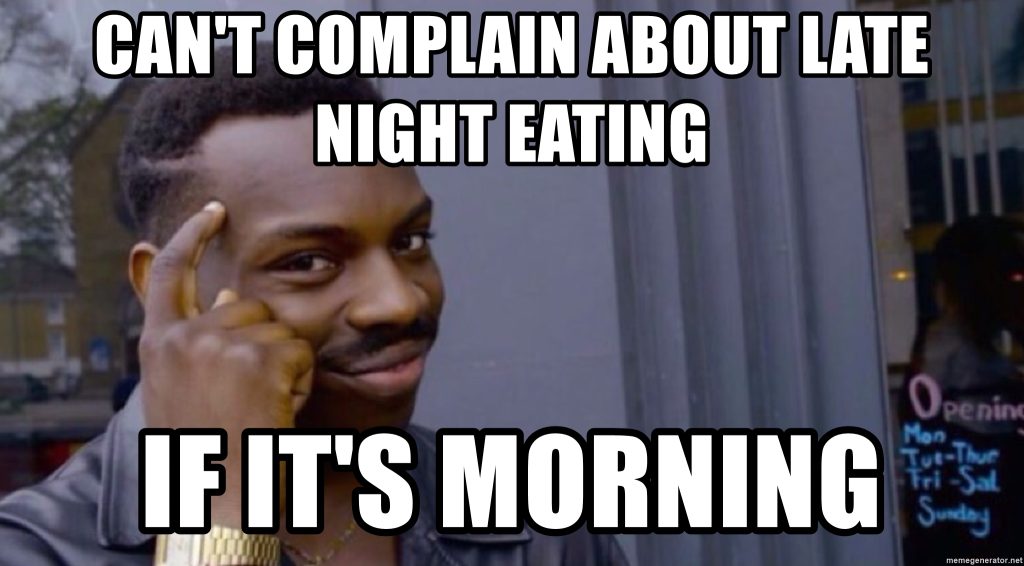
You have an underlying condition
Having an underlying condition or a sleep disorder may be reducing your sleep quality too. This could be because of obstruction in breathing, metabolic issues, frequent need to pee or more. Getting a diagnosis for health conditions like diabetes, urinary incontinence, thyroid, PCOS, insomnia or sleep apnea will help you understand your sleep needs better. Stress and anxiety can also hamper your sleep quality. Excessive worrying can lead to poor or discontinuous sleep.
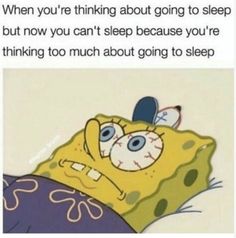
In a world where productivity is the biggest currency, sleep is more important than ever. It helps you relax, lose weight, feel better, stay focused and think better. But most importantly, sleep helps you prevent diseases. In that sense, sleep works just like Even because it makes you your strongest and healthiest self.
At Even, we believe prevention is a love language, one that shows your body exactly how much you care for it. And what better way to prevent illnesses than by regularly checking up on it. Good thing we provide free doctor consultations, and medical tests so you never have to lose sleep over health expenses. And if it ever comes to it, we also give you a Rs 50 lakh health cover, and a 24×7 support for COVID. Not to brag, but we also have brilliant customer service. Don’t believe it? Try it for yourself.



